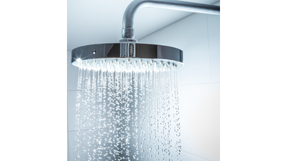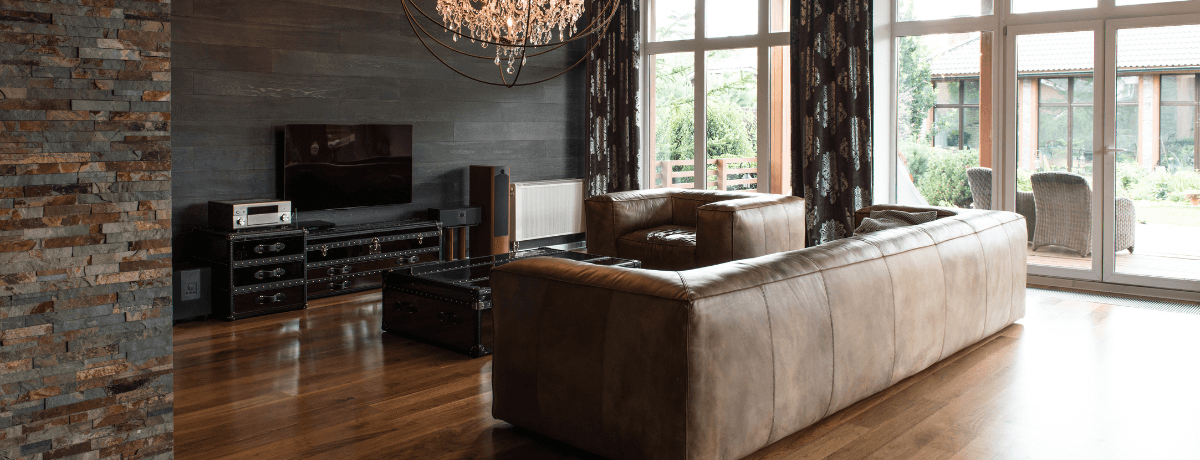Energy Saving Tips After You Move into Your Custom Home

Moving into your new custom home is a wonderful, exciting time and you’ll also have lots of things to stay on top of going forward. After you get settled, one of the things you’ll probably want to think about is energy conservation.
Don’t worry. We have you covered with these ten great tips on how to save energy in your custom home.
Opt for LED Light Bulbs
LED light bulbs are the perfect choice for an energy-conscious homeowner. Compared to compact fluorescent light bulbs (CFL bulbs for short), LEDs are more energy-efficient and longer-lasting without compromising on brightness. That means savings for you, both on your energy bill and in terms of your light bulb purchases.
Even with LED lights, though, remember to turn off the lights when you’re not using them. And whenever possible, go with natural light instead of reaching to turn on the artificial lighting.
Take Shorter Showers
This tip is an old classic and for good reason. Heating the water you use in your showers requires a lot of energy. Cutting down your shower times even just by a small amount could put a serious dent in your home’s energy consumption. Try setting a timer to keep you on track.
Choose Energy Efficient Appliances
For the average home, appliances make up about 13 percent of the total energy consumption. You can bring down your overall energy usage significantly by choosing to fill your home with energy-efficient appliances rather than standard ones. The energy-efficient appliances consume up to 25% less energy than traditional appliances and often much less water, too.
High-efficiency appliances may come with a slightly higher upfront cost but the long-term energy savings will likely outweigh the difference.
Be Mindful of Temperature Controls
Everyone wants to feel comfortable in their own home but you don’t want to get carried away while setting your thermostat.
Lowering your heating by just two degrees in the winter could help you conserve a lot of energy (and save 5-10% on your heating bill, too). Likewise, adjusting your temperature controls in the summer to tolerate a slightly higher temperature could make a big difference in your air conditioner’s energy consumption.
A programmable or smart thermostat can help you get the most out of your heating and cooling while eliminating unnecessary energy use. Simply set the thermostat to automatically adjust when you’re asleep or away from home, for example, and it could start making a difference.
Unplug
Even when you’re not using them, electronics that are plugged in are still drawing power. Try to unplug any appliances or electronics that you’re not currently using to reduce your power consumption. It will take some adjustment to create this habit, but it could make a big difference in the long run.
If regularly unplugging things and plugging them back in sounds like too much of a hassle, smart power strips can help. These power strips shut the power off to electronics when you’re not using them, either at an assigned time or in inactive periods.
Weatherize Your Home
Wherever there are spaces that air can get in and out of your home, you’re wasting energy. This shouldn’t be a problem in a new home but it is something to be aware of going forward. If you ever find a place where the air is entering or escaping your home (like a vent, window, door or attic), be sure to seal the leak as soon as possible.
Use Cold Water to Do Your Laundry
Using cold water to wash your clothes is a small change that can make a big difference. The majority of the energy it takes to run the average cycle in the washing machine is used to warm the water. Reduce the temperature you wash your clothes in by as little as 15 degrees and you’ll save energy plus possibly increase the lifespan of your clothes.
Optimize Your Drying
After you’re done running your clothes through the washer with cold water, you can move on to optimizing your drying. To start, try to only dry full loads of laundry or at least loads that leave the dryer three-quarters full. Remember to regularly clean out the lint trap and don’t over-dry your clothes.
You could even opt to hand dry your clothes if you really want to conserve energy.
Only Run the Dishwasher When It’s Full
It might be tempting to just run the dishwasher every night or every other night regardless of how full (or empty) it is but that’s a mistake. Each load in the dishwasher uses about 15 gallons of water so you want to minimize the number of times you run the dishwasher as much as possible.
To conserve even more energy, let the dishes air dry as long as your dishwasher doesn’t have automatic drying.
Don’t Open the Oven Door
Staying in the kitchen, our last energy-conserving tip is to avoid opening the oven door while you’re cooking. Even just opening the door a crack can let out the heat inside and cause the oven to use extra energy to get back up to temperature. Instead, use the light feature and glass panel to see how things are coming along.
Implement these tips in your new custom home to save energy and reduce your energy bill!

















